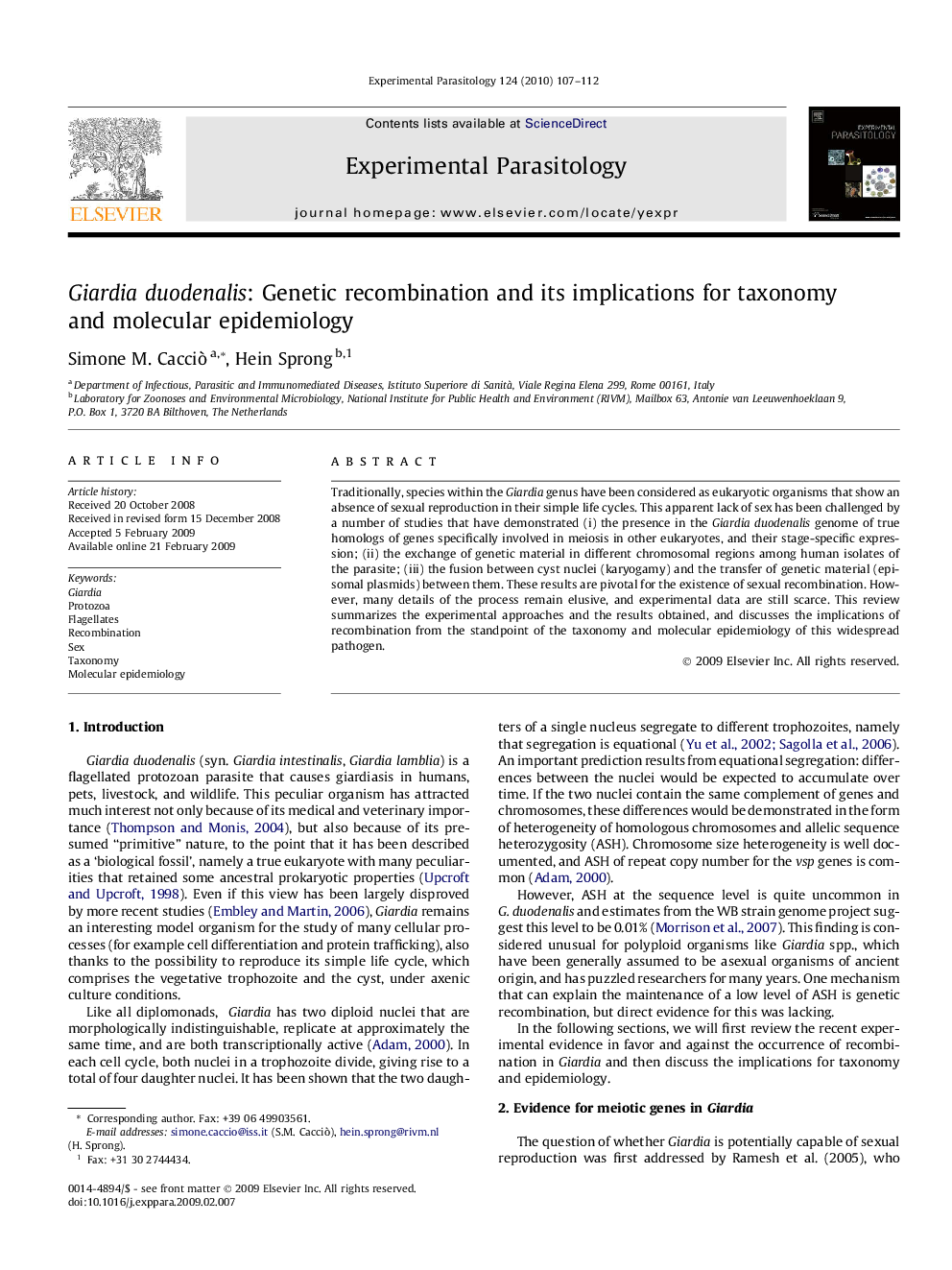| Article ID | Journal | Published Year | Pages | File Type |
|---|---|---|---|---|
| 4371449 | Experimental Parasitology | 2010 | 6 Pages |
Traditionally, species within the Giardia genus have been considered as eukaryotic organisms that show an absence of sexual reproduction in their simple life cycles. This apparent lack of sex has been challenged by a number of studies that have demonstrated (i) the presence in the Giardia duodenalis genome of true homologs of genes specifically involved in meiosis in other eukaryotes, and their stage-specific expression; (ii) the exchange of genetic material in different chromosomal regions among human isolates of the parasite; (iii) the fusion between cyst nuclei (karyogamy) and the transfer of genetic material (episomal plasmids) between them. These results are pivotal for the existence of sexual recombination. However, many details of the process remain elusive, and experimental data are still scarce. This review summarizes the experimental approaches and the results obtained, and discusses the implications of recombination from the standpoint of the taxonomy and molecular epidemiology of this widespread pathogen.
